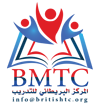Asset Management & ISO 55000 Series Maximizing Returns from Capital Investments
Why Choose this Training Course?
Asset management is vitally important for all capital intensive industries which rely on cost effective and trouble free operation of their plant and equipment. Getting the right dialogue taking place between cross functional groups such as new project, commissioning, operation & maintenance is necessary so that joined up thinking takes place and the life cycle costs of assets are minimized. This intensive asset management course will help to give focus on the drive to improve management practices by presenting standards, methodologies and guidance how to set up good asset management. This will feature how the international standards on Asset Management, PAS55 and ISO55000, can be used to implement the best and latest practices.
This course will feature:
- The asset management system, organization & risk-based framework specified in PAS 55 & ISO 55000 series
- Life cycle costing advantages and issues
- Asset policies & strategies derived from the business plan
- Formulating effective asset management plans and ensuring that they are carried out
- Continuous improvement and the learning organization
What are the Goals?
At the end of this course, delegates will be able to make a substantial, positive impact on the asset management best practices within their organization, specifically:
- Provide a step-by-step guide to Asset Management best practices (as part of PAS 55 & ISO 55000)
- Understand best practice techniques for achieving effective asset management
- Discuss & learn the practical application of these best practices, through case studies & exercises
- Understand the range of technical & human risks associated with asset management & how they can be mitigated
- Develop an action plan to utilize these technologies in their own areas of responsibility, fitting them into the overall asset management strategy, and measuring benefits
Who is this Training Course for?
This course is suitable to a wide range of professionals but will greatly benefit professionals in different branches who are involved in any aspect of asset management. The training is specifically designed for those professionals who want to understand, implement and improve the latest Asset management concepts, processes and possibilities:
- Project, Design & Maintenance Management
- Maintenance & Reliability Engineering
- Operations
- Technical & Quality Support
- Consulting
How will this Training Course be Presented?
This course will utilize a variety of proven adult learning techniques to ensure maximum understanding, comprehension and retention of the information presented. It is composed in such a way that it can be held for all professionals involved in managing or implementing asset management processes. It is conducted along course principles with formal lectures and many interactive exercises. Relevant case studies illustrate the application of each subject in an operations environment and each learning point will be re-enforced with practical exercises. There will be many opportunities for discussion and sharing experiences.
The Course Content
Day One: Introduction to Asset Management & Strategy Framework
- The business impact of asset & maintenance management
- Asset Management process model & strategy framework
- Asset Strategy - Asset Management Policy, Asset Management Strategy, Asset Management Plan
- Asset Management roles
- Differences between PAS55 & ISO 55000 series & the Assessment & certification: PAM & SAM
- Self-assessment tool
Day Two: In Control of Risk
- Identification & assessment of risk
- Risk management: Risk Matrix, Risk Register & Hazard Log
- Safety Management System & Contingency Planning
- Stakeholder analysis – stakeholder risks
- Risk based maintenance concept
Day Three: Life Cycle Management
- Life cycle of an asset
- Creation and acquisition of assets: demand forecasting, asset portfolio evaluation
- Procurement Aspects
- Systems Engineering & RAMS Specification: Operational & maintenance workflow
- Renewal, disposal and lifetime extension of assets
Day Four: Asset Information Management
- Asset information requirements: Asset data & knowledge, Asset knowledge standards
- Using asset management information: Asset information strategy, Stakeholder acknowledgment
- (Key) Performance Indicators
- Specifications, selection, selection & use of asset information systems & tools
- Asset knowledge system & procedures; data collection, storage, dissemination & maintenance
Day Five: Financial & Business Impact
- Cash flow & Budgeting
- Life Cycle Costing principles
- Asset Management planning: long term investment plan / long term maintenance plan (MIP/MJO)
- Change management
- Competency framework

